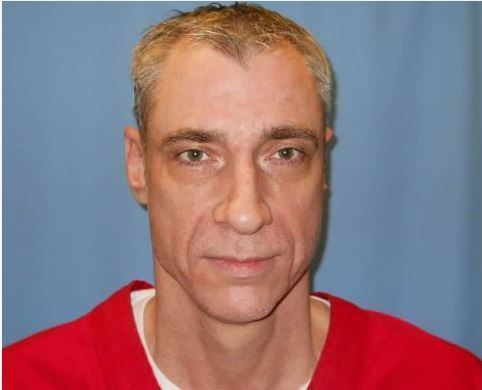Still no execution date for Loden
Published 8:00 pm Saturday, November 25, 2017

- Thomas Loden, a former U.S. Marine recruiter in Vicksburg, is still on Mississippi's death row for the 2000 kidnapping, rape and murder of Leesa Marie Gray.
Earlier this year, Mississippi Attorney General Jim Hood said he would ask the Mississippi Supreme Court to approve execution dates for Richard Jordan and Thomas Loden Jr., a former U.S. Marine recruiter in Vicksburg.
No dates have been set for either inmate as both continue to challenge in court the state’s lethal injection methods. And at this point, it is unlikely either will be executed in 2017.
Loden pleaded guilty in 2001 to kidnapping, raping and murdering Leesa Marie Gray in Itawamba County in June 2000 after she had left Comer’s Restaurant where she worked as a waitress.
Jordan, meanwhile, has served 41 years on death row for kidnapping and killing Edwina Marta in Harrison County in 1976.
“In a couple of weeks, we hope to get this motion filed to get the federal court case dismissed, and also at the same time, file a motion with the Mississippi Supreme Court to set an execution date, hopefully sometime this fall,” Hood told the Associated Press in July.
It has been five years since Mississippi executed a death row inmate. The state executed six death row inmates in 2012 by way of lethal injection. Since then, lawsuits have been filed on behalf of death row inmates who claim the drugs used in the execution are harmful and the method is cruel and unusual punishment.
There is a three-step protocol to execute death row inmates at the state prison at Parchman. The first drug is an anesthetic, which puts the prisoner to sleep. The second drug paralyzes the inmate. The third drug is potassium chloride, which stops the heart. Hood said the legal battle surrounds the first drug, the anesthetic. For years, the state used sodium pentothal, but after lawsuits, drug manufacturers stopped making it.
Mississippi adopted a new drug, midazolam, as the first injection in the three-step protocol, which Hood said is approved by the U.S. Supreme Court. But Jordan’s lawyer, Jim Craig of the MacArthur Justice Center, argues midazolam is not strong enough to keep a prisoner unconscious. Because of that, he claims that the second drug can shock them back into a form of consciousness.
Before this year, state law specified that a fast-acting barbiturate such as pentobarbital, meant to quickly make a prisoner unconscious, must be used in executions. Legislators rewrote the law to say any “appropriate anesthetic or sedative” can now be used before executioners would administer a paralyzing agent and a drug that stops an inmate’s heart.
Mississippi plans to use the sedative midazolam, which has been repeatedly challenged nationwide because prisoners have coughed, gasped and moved for extended periods during executions.
There has yet to be a ruling on midazolam by Mississippi’s Supreme Court, and justices specifically sidestepped the question in July.
In a 6-3 decision, justices rejected a challenge by Jordan to use midazolam because lawmakers changed state law. Justices also rejected Jordan’s claim that his 41 years on death row make his execution unconstitutional.
“Because we find Jordan’s claim to be moot, we decline to address whether midazolam is or is not a permissible drug under the current statute,” Presiding Justice Jess Dickinson wrote for the majority.
In June, the court rejected a similar appeal from Loden because the law had changed.
“It would be extremely premature to set execution dates at this point,” said Craig, Jordan’s lawyer.
The Associated Press contributed to this report.





